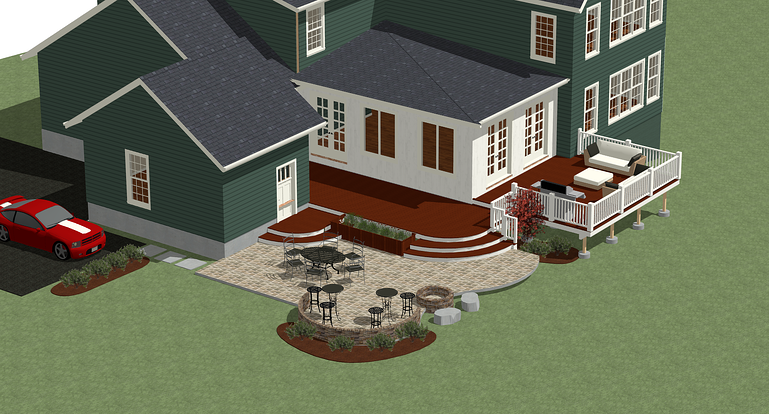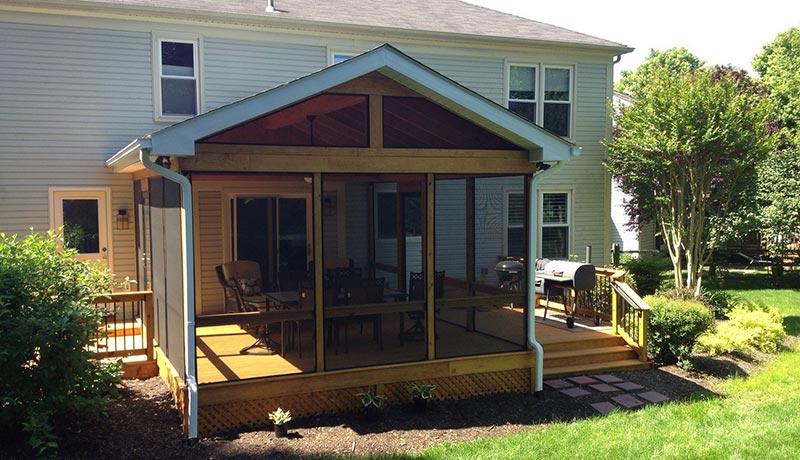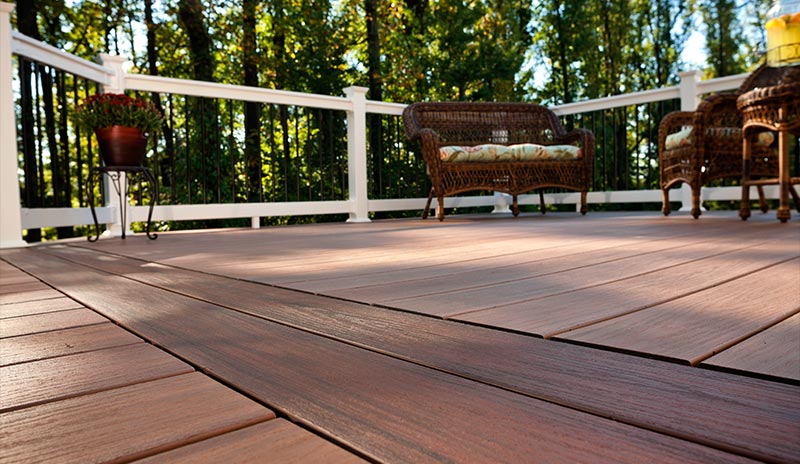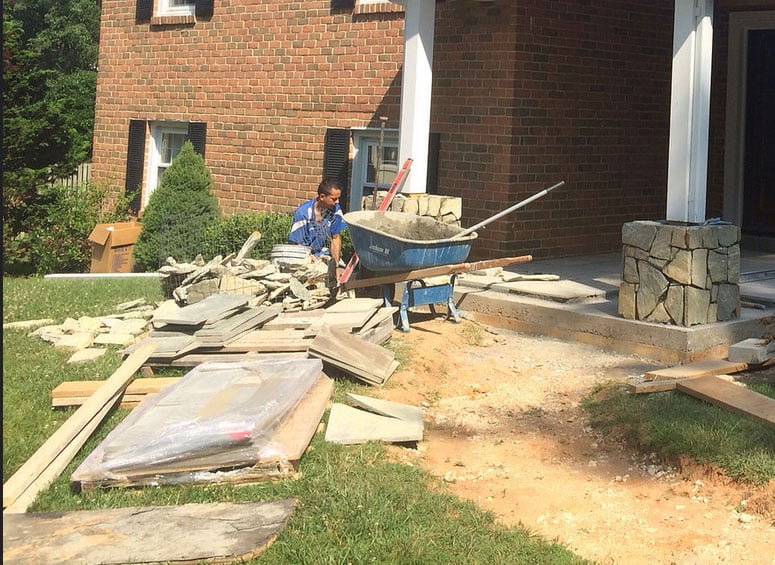
Posted in: Decks and Patios, Deck Design, deck builders, Howard County deck and patio
Monday, January 05, 2015

Posted in: Decks in Maryland, Decks and Patios, Decks in Virginia, Deck Tips, Deck Maintenance, deck questions, Porch and Deck Care
Sunday, November 30, 2014

People are always asking us how they protect their decks during the cold and blustery winter months so there’s no damage or excessive wear-and-tear when the spring comes. As long as your deck was properly installed and maintained, you don’t really need to worry because they are designed to withstand the snow and ice that come with winter storms.
However, this doesn’t mean there aren’t things you should do to get your deck ready for the winter. Just like you winterize your car, you should winterize your deck to minimize the effects the elements will have on it. But what should you do exactly? And when?
Posted in: Screen Porch in Northern Virginia, Decks in Maryland, Decks and Patios, Decks in Virginia, Deck Contratcors, Deck Building Tips, Deck Products, Deck Tips, Screen Porch in Maryland
Saturday, November 22, 2014

If you’re looking to remodel something or add a feature to your home in the hopes of increasing your resell value, you probably have lots of ideas. Maybe you want to add a family room. Or put in an additional bathroom. Or even get a new roof because the current one is really showing its age.
These aren’t bad ideas, and many of them provide a decent return-on-investment, but there’s another option that you should consider: buying a wood deck. Decks in general are pretty good investments, with composite decks showing a 74% return rate, but wood decks are resell superstars. How much do people get back on average? Wood decks provide 87% rate of return on your investment.
Where home remodels and renovations are concerned, that kind of ROI is practically unheard of. So why is it that people are able to get back such a high percentage of what they put into wood decks? There are a number of reasons.
1. Wood decks are a lower up-front cost. This is probably the biggest and most straightforward reason why you’re so likely to see such a high return. A typical wood deck will run you just under $10,000. Contrast that with the price tag of a family room with the same square footage: over $80,000. When prices are lower, you have a better chance of earning closer to the full value back.
2. It’s the deck people expect. When someone tells you that a house has a deck, chances are good that the first image that pops into your head is of a standard wooden deck. It probably has been stained, but not painted, and it’s likely that there are stairs. Maybe it’s relatively close to the ground, or maybe it hovers over a basement entrance into the house. Why is this important? Because if you opt for a synthetic deck that goes against what people are imagining, it is possible that they will be turned off simply because you thwarted their expectations. In short, because wood decks are “safe,” people tend to be more accepting of them and willing to pay for them.
3. Wood decks can easily be updated. “Plain Jane” hardwood can be easily changed so that it appeals to all kinds of people. If they’re not a fan of the color, they can repaint it. If they’re thinking about getting a hot tub, wood decks are compatible. In contrast, if you opt for a synthetic decking material you are more likely to be locking yourself into more limited options in terms of what you can do. Some synthetics can’t handle being near water, aren’t able to be repainted, or come with other limitations as far as malleability is concerned.
Both the costs mentioned above and your likely return on investment are national averages that will vary based on where you live and what the climate is like. Those residing in temperate climates where the deck is likely to receive more use can expect to get a better return on investment, generally speaking, but they will also likely pay more up front for the deck. People living in colder climates will probably pay less, but will also get a lower percentage of their investment back.
The biggest thing to keep in mind where resale value is concerned is that simpler is better. You can spend tens of thousands to customize your deck to your unique desires, but that doesn’t necessarily mean that it will be more valuable to someone else who has preferences that differ. In fact, unless you just happen to find a buyer who shares your aesthetic tastes, you may find that your return on investment is much lower than you expected. When you want mass appeal, simple wooden decks work best.
Posted in: Screen Porch in Northern Virginia, Decks in Maryland, Decks and Patios, Decks in Virginia, Deck Building Tips, Deck Building Questions, Deck Products, Deck Tips, Deck Design, Screen Porch in Maryland
Thursday, November 13, 2014

If you’re thinking about building a deck and want to go with a synthetic material, you need to understand your options. Besides real wood, there are a number of synthetic materials on the market, including PVC, capstock, and composite.
Composite, a combination of plastic, wood fibers, and wood flour, is the least expensive option and has several benefits over wood, but also requires regular maintenance and is prone to dry rot, staining, and mold and mildew. Capstock is essentially composite decking with a layer of PVC on the outside. It’s resistant to all kinds of issues that plague wood and composite, but can still suffer from mildew or mold if the material can’t breathe. PVC decks are comprised of plastic resin. This makes them easy to maintain and resistant to things like stains, splinters, scratches, and mold, but they still fade over time and are not particularly environmentally friendly.
Posted in: Decks in Maryland, Decks and Patios, Decks in Virginia, Deck Contratcors, Deck Building Tips, Deck Building Questions, Deck Estimate, Deck Tips
Monday, August 18, 2014

When comparing bids, something you might not think to take into consideration is the hours that your deck contractor will be working. After all, it’s no skin off your back when they do their job, right?
But it can have an impact on your day-to-day living, and it can say a lot about how the contractor views you and your project. If your contractor wants to work weekends and evenings, then you may find yourself facing these issues.